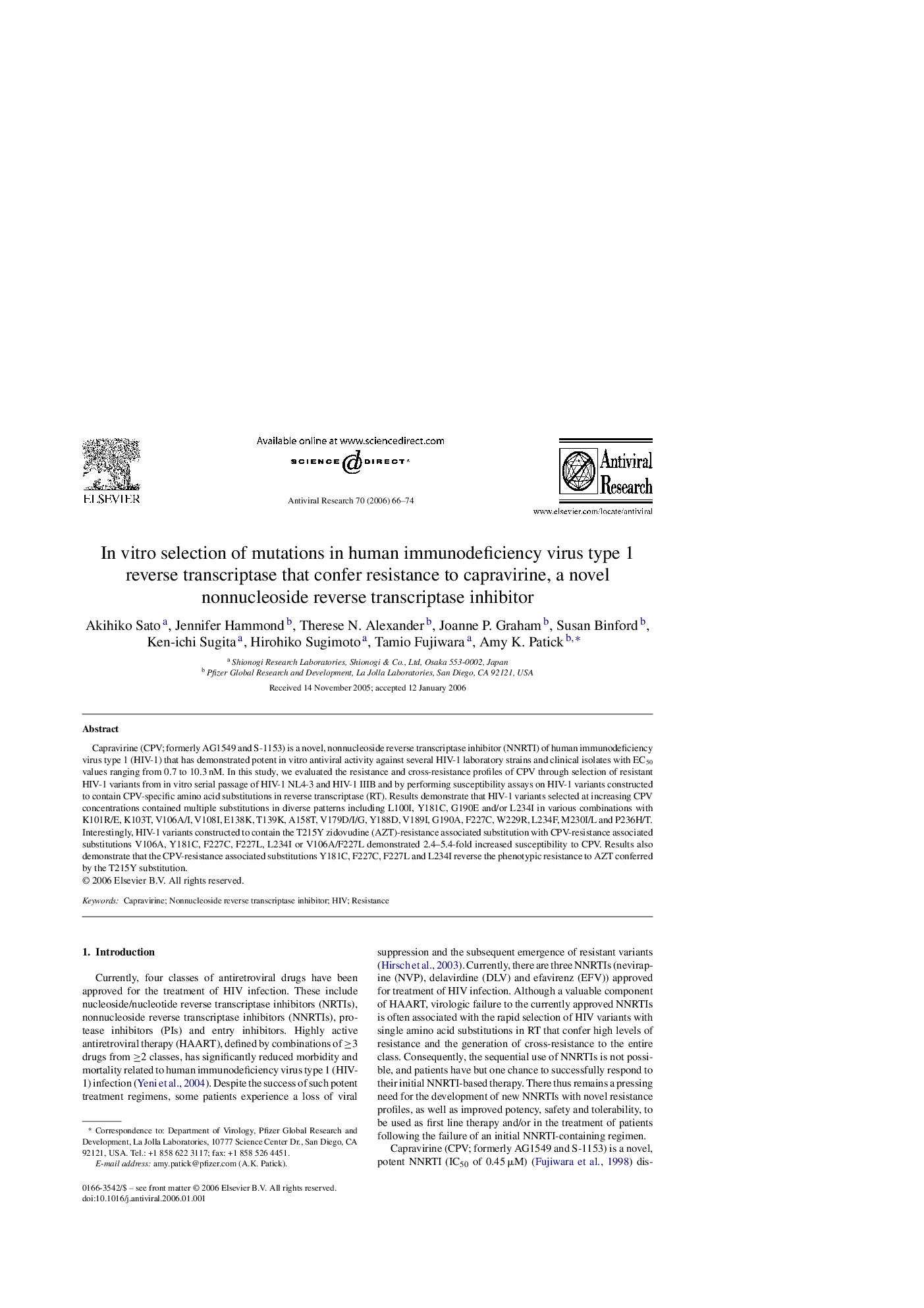| Article ID | Journal | Published Year | Pages | File Type |
|---|---|---|---|---|
| 2511719 | Antiviral Research | 2006 | 9 Pages |
Capravirine (CPV; formerly AG1549 and S-1153) is a novel, nonnucleoside reverse transcriptase inhibitor (NNRTI) of human immunodeficiency virus type 1 (HIV-1) that has demonstrated potent in vitro antiviral activity against several HIV-1 laboratory strains and clinical isolates with EC50 values ranging from 0.7 to 10.3 nM. In this study, we evaluated the resistance and cross-resistance profiles of CPV through selection of resistant HIV-1 variants from in vitro serial passage of HIV-1 NL4-3 and HIV-1 IIIB and by performing susceptibility assays on HIV-1 variants constructed to contain CPV-specific amino acid substitutions in reverse transcriptase (RT). Results demonstrate that HIV-1 variants selected at increasing CPV concentrations contained multiple substitutions in diverse patterns including L100I, Y181C, G190E and/or L234I in various combinations with K101R/E, K103T, V106A/I, V108I, E138K, T139K, A158T, V179D/I/G, Y188D, V189I, G190A, F227C, W229R, L234F, M230I/L and P236H/T. Interestingly, HIV-1 variants constructed to contain the T215Y zidovudine (AZT)-resistance associated substitution with CPV-resistance associated substitutions V106A, Y181C, F227C, F227L, L234I or V106A/F227L demonstrated 2.4–5.4-fold increased susceptibility to CPV. Results also demonstrate that the CPV-resistance associated substitutions Y181C, F227C, F227L and L234I reverse the phenotypic resistance to AZT conferred by the T215Y substitution.
